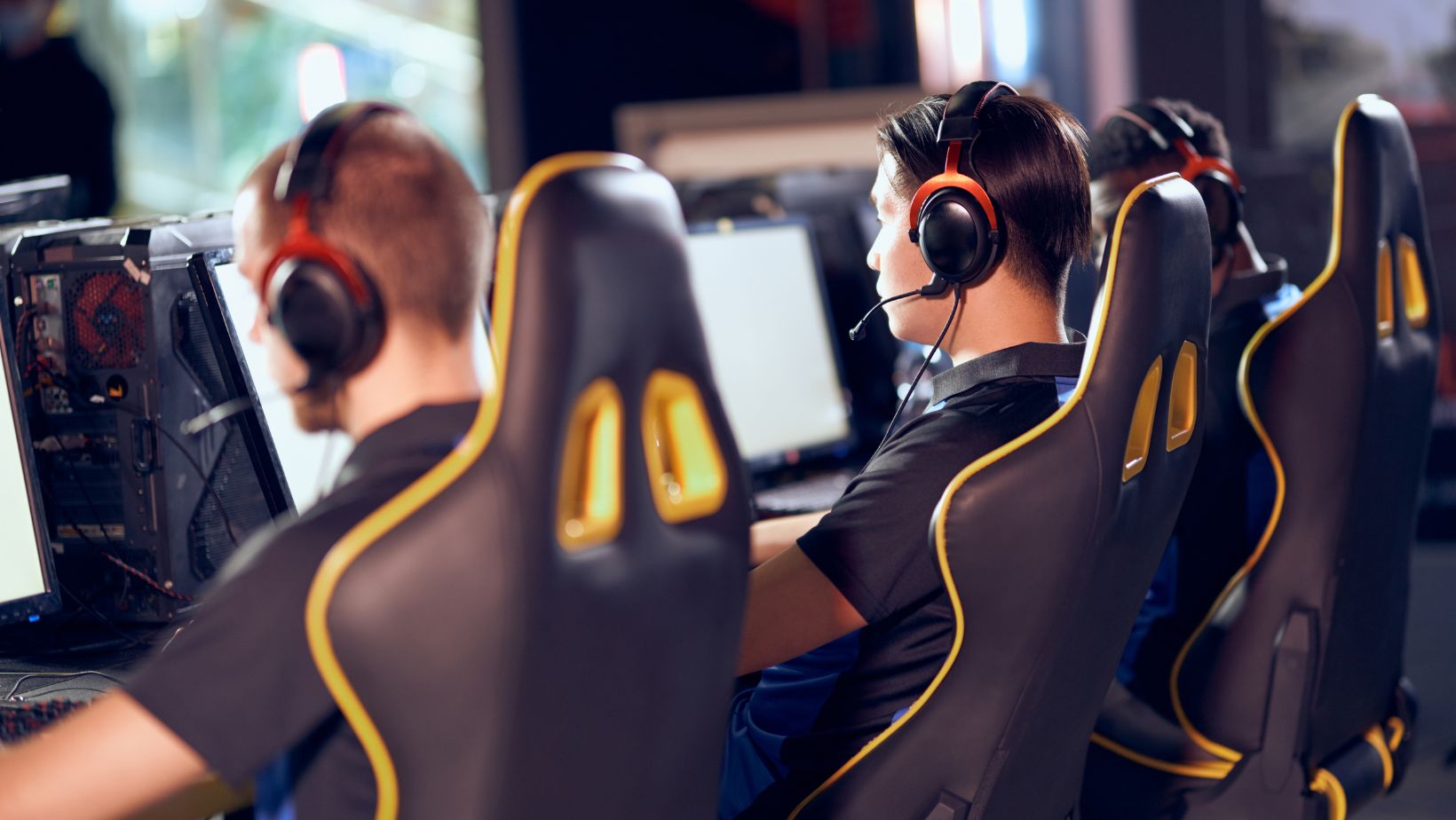
NFL x Fortnite Crossover
In 2020, Epic Games made headlines with a bold partnership that brought the NFL into Fortnite’s digital battlefield. This was not just cosmetics; it marked a shift in how sports leagues could meet audiences inside virtual worlds. Fortnite introduced NFL-themed skins representing all 32 teams, allowing players to wear their fandom armor in Battle Royale. Players could dress their avatars in official team jerseys, mix-and-match styles, and even participate in NFL Rumble, a limited-time mode featuring two teams of 20. Timed with the Super Bowl and Pro Bowl seasons, these integrations have recurred annually. These events brought exclusive content, in-game challenges, and increased visibility of the league within the Gen-Z gamer base. NFL stars like Patrick Mahomes and Justin Jefferson even received Icon Series skins, blurring the lines between athletes and avatar.EA Sports Madden League
The EA Sports Madden Championship Series has become a staple of NFL’s official eSports presence. With over $1 million in prize money awarded each season, the Madden League attracts elite competitive gamers and a devout audience on Twitch and YouTube. Tournaments like the Madden Bowl, Madden Club Championship, and Ultimate Madden Challenge are broadcast by NFL Network and ESPN, signaling how eSports has found legitimacy alongside Monday Night Football. Winners of the Madden Bowl often receive Super Bowl-style rings, and some even sign up with professional eSports organizations. Top Madden players like Henry Leverette (a.k.a. “Henry”) and Wesley Gittens (a.k.a. “Wesley”) are now recognized as stars, earning sponsorships and building massive followings. In 2022 alone, the Madden Club Championship featured a prize pool of $750,000 and participation from representatives of all 32 NFL teams.Forbes Gaming Coverage
Forbes, a leading authority in business journalism, has increasingly focused on the monetization of gaming tied to traditional sports. In coverage spanning from 2021 to 2024, Forbes reported how NFL-backed digital events like Madden leagues and Fortnite collaborations drive revenue and expand demographic outreach. They emphasize the dual-market benefit—NFL extends its brand among Gen-Z and millennials, while gaming platforms acquire legitimacy and fan loyalty associated with legacy sports institutions. One 2023 Forbes feature noted that the Madden franchise generated $4 billion in revenue since its inception, with more than 130 million copies sold. These numbers align with Forbes’ analysis on ROI from cross-branded digital merchandise, showing NFL skins and digital memorabilia reaching seven-figure revenue totals during peak events like Thanksgiving and Super Bowl weeks.
One 2023 Forbes feature noted that the Madden franchise generated $4 billion in revenue since its inception, with more than 130 million copies sold. These numbers align with Forbes’ analysis on ROI from cross-branded digital merchandise, showing NFL skins and digital memorabilia reaching seven-figure revenue totals during peak events like Thanksgiving and Super Bowl weeks.
Fantasy Football Influence
In the middle of this crossover movement, fantasy football remains a cornerstone of fan engagement. The popularity of real-time analytics, player stats, and roster decisions has seeped into gaming behavior. Players who participate in fantasy football often replicate or strategize around their digital and real-world picks, guided heavily by updated fantasy football rankings. Titles like Madden 24 have started integrating real-life weekly performances into Ultimate Team player cards, incentivizing gamers to follow Sunday performances even closer.Bridging Two Universes
The shared identity between NFL fans and gamers is more than symbolic—it is strategic. NFL Sundays drive social media conversations, fantasy debates, and digital competition. That energy transfers to digital ecosystems where the same fans can play Madden, wear their team colors in Fortnite, and stream highlight reels on Twitch. These crossover identities are also visible in user-generated content, including custom team rosters, streaming overlays with team logos, and fantasy-draft simulations powered by AI tools. Twitch streamers like “TDBarrett” and “MMG” regularly host Madden tournaments with fantasy-inspired lineups, drawing over 1 million views per month. Meanwhile, YouTube creators release real-time reactions to NFL events, transforming raw game data into entertainment assets. This digital mirroring of fandom boosts engagement and extends the NFL brand to its 17-game season.Player Endorsements in eSports
NFL players are not just being represented—they are active participants. Athletes like JuJu Smith-Schuster, Kyler Murray, and Chase Claypool have built Twitch channels and regularly stream Fortnite, Madden, or Call of Duty. In 2023, Mahomes launched his own Fortnite skin, making him the first NFL quarterback with an in-game presence and direct endorsement through Epic Games. Smith-Schuster signed with eSports organization FaZe Clan in 2020, marking one of the first official crossovers between a pro athlete and competitive gaming brand. These integrations humanize the athletes, introducing them to gaming fans who may not watch full NFL games. That broader exposure expands in both markets.Virtual NFL-Themed Events
The concept of virtual stadiums is no longer science fiction. In 2021, Fortnite hosted an NFL Wild Card Weekend event where players could access a digitally recreated stadium map, complete with crowd noise, interactive scoreboards, and football-themed emotes. In Madden 23, EA introduced “The Yard”—an arcade-style 6v6 mode that includes custom NFL-themed courts and gear. During the Super Bowl LVII week, over 2.3 million users participated in the Madden Super Bowl Challenge within Ultimate Team mode. These digital celebrations not only draw concurrent user spikes, but often outperform traditional halftime shows on engagement metrics within their respective platforms.Youth Engagement via Gaming
Younger generations are less likely to watch linear TV, yet they are avid gamers. The NFL uses this knowledge to strategically embed its brand into places where youth’s attention is concentrated. According to the 2024 Nielsen report, over 35% of Gen-Z boys between ages 13–17 engage more with Madden content on YouTube than with live football broadcasts. Interactive gaming moments become the first point of exposure for new fans. Madden NFL 24’s “Face of the Franchise” mode now mirrors player development arcs that attract narrative-focused gamers. Meanwhile, Fortnite’s inclusion of NFL players as characters offers a form of visual storytelling that introduces personalities like Travis Kelce and Joe Burrow to young gamers unfamiliar with Sunday broadcasts.
Interactive gaming moments become the first point of exposure for new fans. Madden NFL 24’s “Face of the Franchise” mode now mirrors player development arcs that attract narrative-focused gamers. Meanwhile, Fortnite’s inclusion of NFL players as characters offers a form of visual storytelling that introduces personalities like Travis Kelce and Joe Burrow to young gamers unfamiliar with Sunday broadcasts.


